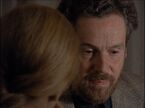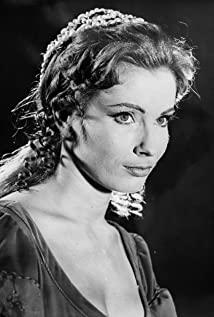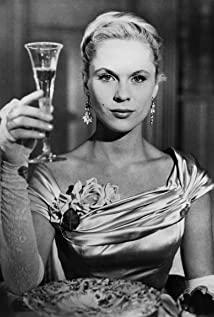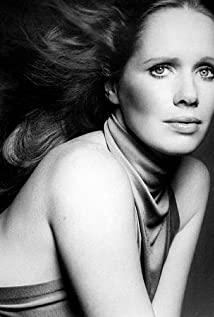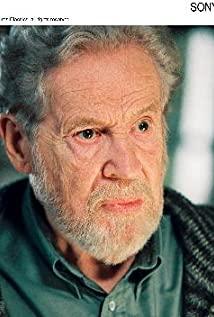After watching the five-hour extended version, the whole indoor scene, high-density dialogue and facial close-up did not feel dull at all. Several places even hold their breath and grieve with the protagonist.
Uman appropriately expresses his heart through facial micro-expressions, and his acting skills are so emotional.
The first act shows the state of a "perfect" married life, with Marianne and Joann respecting each other, as opposed to the mutual slander and sarcasm shown by the best friends and couples. But from the details, we can see the affiliation of Marianne and Joanne in their marriage. Their lives may be "happy", but they can't see the feelings in it.
The second act shows some details and trivialities of life, such as whether or not to participate in family dinners, which shapes Marian's character and the character of getting along with her family. Marianne's conversation with her client and Joann's conversation with her colleague reveal their doubts and uncertainty about their relationship. When I saw this, I probably judged their marriage-probably the most suitable partner, but they didn't love each other.
When the third act crisis comes, Joan derails, insists on leaving, and tries to cover up her guilt by being ruthless. Marianne endured the pain, but habitually took care of her departing husband's life. Her biggest worry was not her being abandoned, but her husband who could not be taken care of. On the contrary, in this scene, I saw the love between them with certainty. When Joan derailed, the gesture they showed was more like the unreserved form of love-no hysteria, but endured to care and understand as much as possible. In the process of watching this scene, I also have some thoughts on love and life. They may not have passion, but they have a high degree of mutual understanding and help. Isn't this the core of love? Their relationship is not uncertain and calculating, but there is an endless heart for the other half and a bottomless understanding and forgiveness. Compared with vigorous and vigorous, such love is more precious.
The fourth act is more interesting, with Joanne apparently growing weary of life with her lover and turning to Marianne for comfort. But Marianne began to seek psychological redemption, began to reflect on herself and others, and awakened in her own subjectivity. The fragment of reading the diary is particularly moving. The subtlety is that after reading the diary, I found Joan dozing beside me. Their pace is no longer aligned at this moment, Joanne is still seeking material and physical comfort, but Marianne has begun to redeem herself. Marianne reflects on the fact that the two of them have gradually lost themselves in the family trivialities. She realizes the value of their spiritual fit and is determined to rebuild their lives. But Joanne flinched. The divorce scene in Act 5 is another pinnacle, with Marianne in high spirits and Joann down. Marianne rebuilds a better life for herself, but Joanne gets bored with her lover. In this scene, Marianne burst out with strong dissatisfaction with Joann and her family of origin and even social discipline. As she wrote in the diary of the previous scene, she realized that she was tamed by everyone to be "perfect", but this perfection is based on In exchange for sacrificing yourself. One person's emotional outburst fermented into two people's uncontrollable behavior. Joan beat Marian uncontrollably. I prefer to understand it as the catharsis of his self-powerlessness. Obviously he regretted his choice of abandoning his wife and children, and he began to be confused about his pursuit. They vent their hatred for each other in the quarrel, but I can't see the hatred between them, their mutual complaints are obviously not the same as the hatred between the good friends and couple in the first act, I think maybe between them It is more of self-reflection and regret, resentment of the past self.
In the last scene, the current situation of Marianne and Joan was explained respectively. The result was that the two had an affair behind their backs after they formed a family. It was a wonderful ending. It seems to me that there is no doubt that there is a constant love between Marianne and Joanne, even more clearly when there is no marriage and moral restraint. After finding themselves, learning to love themselves, and not thinking about the trivialities of life, their previous love reached new heights... So is marriage a grave of love after all? In the end, the two of them abandoned their marriage one after another, abandoning the loyalty and responsibility in the marriage. In the new marriage, they did not become more devoted and sincere, but habitually lied to maintain a sense of security on the surface. The maintenance of marriage depends on love and mutual respect and tolerance, but it is still not enough (in fact, it is difficult enough to achieve these three points). Is marriage funny after all? I can't accept it. On the contrary, after reading the stories about love and marriage, I even believe in love and don't fear marriage. If love eventually turns sour, and marriage is essentially a constant grinding of feelings and individuals, they may endure in a more sturdy form.
View more about Scenes from a Marriage reviews





